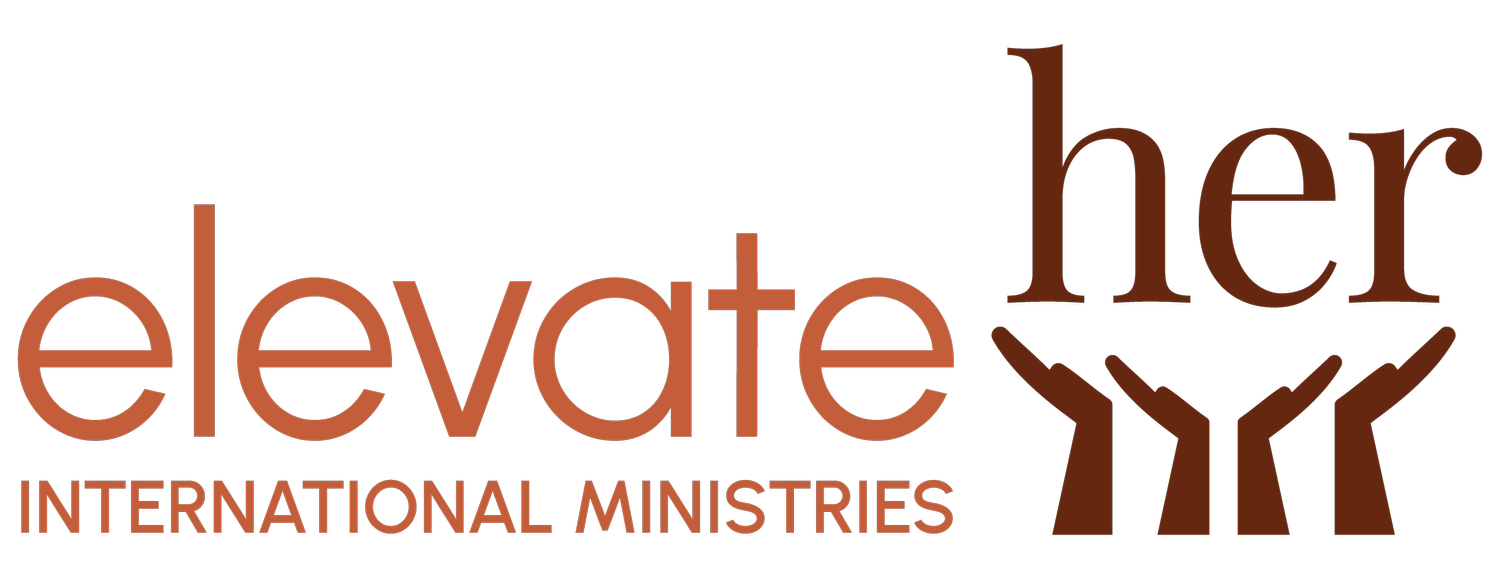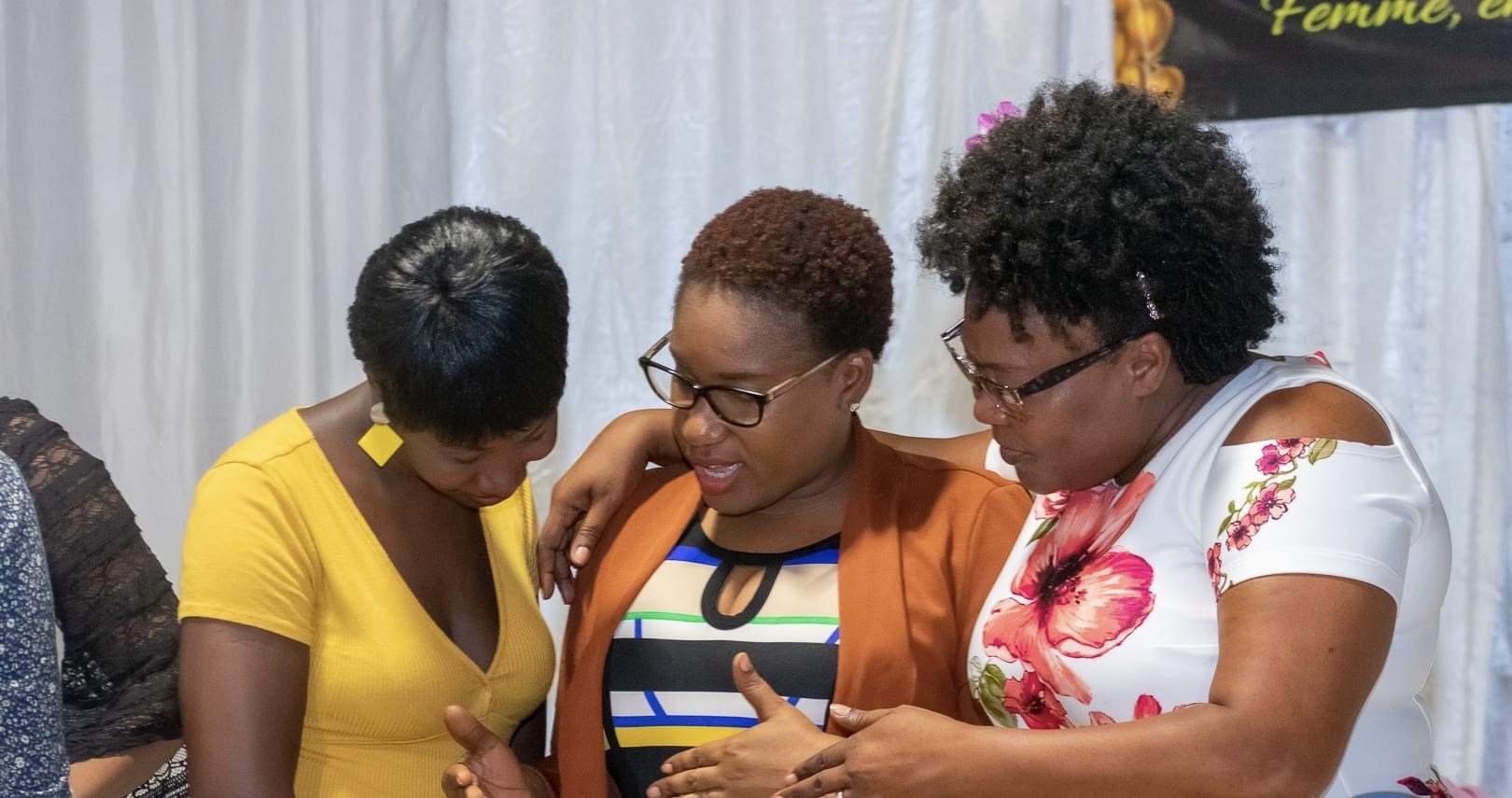
Areas We Serve
At ElevateHer, we are committed to empowering women in communities across the world impacted by sexual abuse, domestic violence, civil unrest, government instability, joblessness, and financial insecurity.
United States
ElevateHer began its outreach to women in the Dallas County Jail-Lew Sterrett Justice Center. Many women incarcerated at Lew Sterrett Jail suffer from mental health issues, including depression, anxiety, PTSD, and other conditions. Studies show that women in jails, including those in Dallas County, are more likely to have mental health conditions compared to their male counterparts. Pre-existing trauma, such as domestic violence, sexual abuse, or childhood neglect, is common.
We met weekly for three years in small groups teaching on trauma and healing through biblical stories and lessons. Classes were always full. We knew we were on to something when our class was the most requested.
Since then, ElevateHer has reached out to other communities throughout the US in NJ, NY and PA working primarily with the Haitian American immigrant community.
The Haitian immigrant community in New Jersey, New York, and Pennsylvania faces significant challenges related to immigration status, economic barriers, language, healthcare, and education. While there are strong community networks and advocacy groups working to support Haitian immigrants, systemic barriers and socio-political issues continue to impact the well-being and integration of this population.
Haiti
Aside from the fact that our founder and CEO, Dieula, was born and raised in Haiti, focusing our trauma-healing work on Haiti is necessary for many reasons. The island of Haiti has a history of trauma stemming from before the enslaved people from the West Coast of Africa (Benin, Congo, Nigeria, Ivory Coast, etc) were brought to cultivate the land. The Haitian Revolution can be named as the climactic point of its trauma.
The enslaved revolted against the heinous and evil acts they were suffering from rendering them the First Free all-Black republic. Sounds like good news, however, the trauma persisted. The newly freed citizens of Haiti were punished by the international community and were disregarded, rejected, and ignored. From the work we've done in trauma, these were the perfect conditions for a nation to develop PTSD. These were also the perfect conditions for generational trauma to persist.
In addition to the trauma of the brutality of slavery and fighting for independence, there's also a backdrop of patriarchy on the island of Haiti, the system where women are relegated to being lower in rank and less valuable than their male counterparts. This system is often at play without accountability and is often said to be ordained by God which creates the atmosphere for abuse against women and girls. Throughout Haiti’s history, it's easy to blame the current generation for its demise but we cannot do impactful trauma work without going back and understanding the beginning of the traumatic events.
This is why ElevateHer is focused on making a difference in the lives of the women of Haiti. We believe if change is going to take place in Haiti, Women must be a large part of the solution and we must begin by focusing on the trauma women experience in Haiti. We believe when women are impacted by the pain of trauma, it has the capacity to destabilize them and prevent them from flourishing, and all will be impacted. We also believe when women are on the healing journey, all will also be affected.
Women and girls are the backbone of Haitian society and local economy. Nearly half of Haitian households are women-led. Women are also pillars of economic life, as they form the majority of street vendors and support agricultural supply chains. However, women and girls continue to be affected by severe inequality, and gender-based violence.
Kenya
Our very first trauma healing conference was in a community called Mt Elgon. We met the women after the results of an election that resulted into a civil unrest that impacted women in significant traumatic ways. Here are some general statistics about Kenyan women.
In 2023, 50.5% of Kenya’s population was female.
In 2022, women made up 49.7% of Kenya’s labor force.
An estimated 1 in 4 young women in Kenya were married or in a union before age 18. Child marriage is often due to poverty, tradition, and gender inequality.
Women in Kenya have only 81% of the legal rights of men.
34% of Kenyan women have experienced physical violence since age 15.
According to a study of primary and secondary school students in Kenya, 26.8% met the criteria for PTSD.
Democratic Republic of the Congo
One of the first trips we took to the Democratic Republic of Congo (DRC), the women were reeling from the devastation of a volcano that erupted in Goma. They lamented: "when the volcano erupted we couldn’t just focus on self preservation; we had to make sure the children and our parents made it out safely. There were times, we had to tie a rope around the waist of our children so we would all stay close." Here are some stats to further explain the need in DRC.
DRC is endowed with exceptional natural resources, including minerals such as cobalt and copper, hydropower potential, significant arable land, immense biodiversity, and the world’s second-largest rainforest.
As of February 2021, only 12.8% of seats in parliament were held by women. In 2018, 35.6% of women aged 15-49 years reported that they had been subject to physical and/or sexual violence by a current or former intimate partner in the previous 12 months. Decades of armed conflict have led to the deaths of over 2 million civilians and estimates suggest over 1 million women have been raped.
Uganda
Uganda and South Sudan have a complex history regarding migration and displacement, with the situation deeply influenced by conflict, political instability, and humanitarian crises. Since gaining independence in 2011, South Sudan has experienced prolonged civil war (2013–2018 and subsequent instability), leading to massive displacement. Over 2 million South Sudanese have fled the country, seeking refuge in neighboring nations, with Uganda being a primary destination.
Uganda hosts over 900,000 South Sudanese refugees, the largest refugee population in the country. ElevateHer's presence was to work with the women within these two groups which at times have a great deal of strife among them.
Brazil
Women in São Paulo, Brazil, face a range of challenges, reflecting broader gender inequality issues present across the country. While São Paulo is Brazil's largest city and a major economic hub, many women there still encounter systemic barriers that impact their safety, health, economic opportunities, and overall well-being.
In 2022, reports of domestic violence increased significantly across the city, with many incidents underreported due to fear or lack of trust in the authorities.
Femicide, the killing of women due to their gender, is a serious issue. São Paulo has created specific units in police stations to handle gender-based crimes, but femicide rates remain concerningly high. In 2020, there were 180 reported cases of femicide in São Paulo state.
Women in São Paulo frequently face sexual harassment, both in public spaces (e.g., public transportation) and in the workplace. A study by São Paulo’s City Hall in 2018 found that 97% of women had experienced sexual harassment in public spaces.
Many women in São Paulo are the primary caregivers for children, elderly family members, or dependents.
Issues of race, gender, and class intersect in São Paulo, leading to compounded disadvantages for Black, Indigenous, and poor women. Afro-Brazilian women are overrepresented in domestic work and informal jobs, and they face more barriers in accessing education, healthcare, and professional opportunities.

Want to get involved?
GIVE.
Your donation is more than just a gift — it's a global investment in the lives of women. Every contribution helps us extend our reach, offering vital care and education to women in need.
PARTNER.
Your partnership increases our impact, while strengthening your commitment to social responsibility. Together, we can transform lives and uplift whole communities.
VOLUNTEER.
Whether through hands-on work in our programs or supporting our mission behind the scenes, volunteering offers the opportunity to make a lasting impact.






